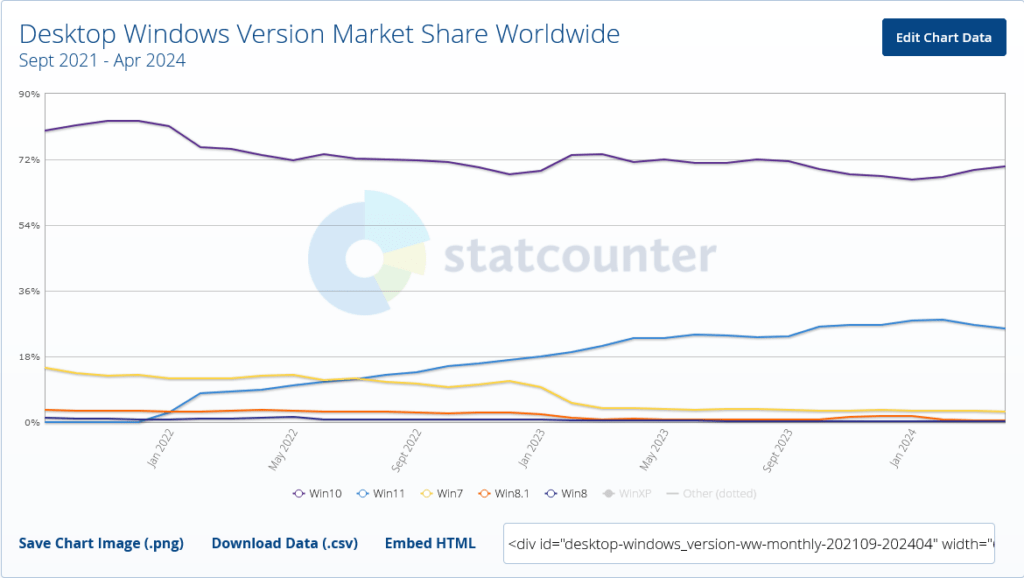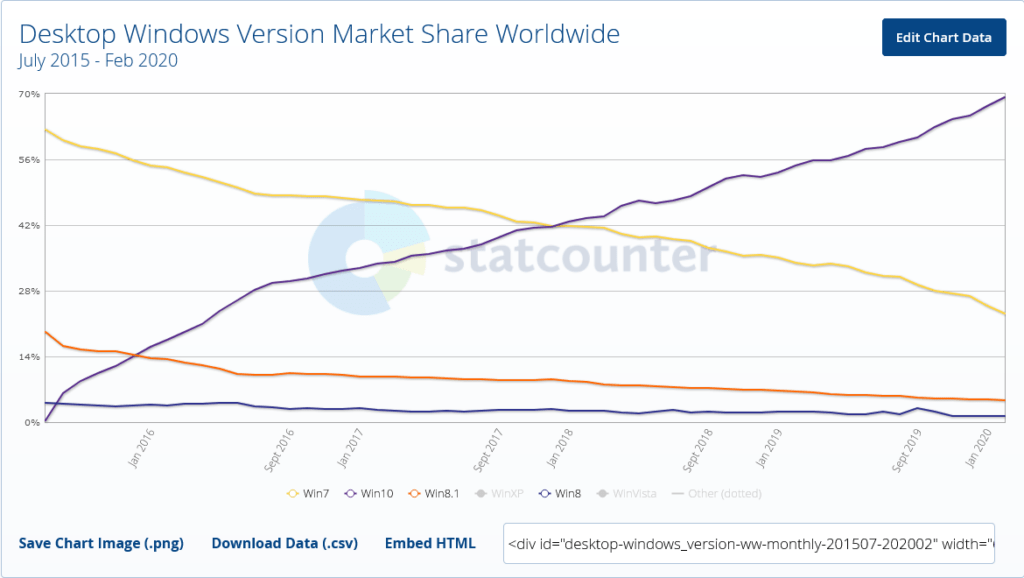In a year and a half, Windows 10 extended support will end. Problem: the migration to Windows 11 is not going well. The operating system's market share still remains very high, without showing any major signs of decline. In comparison, the transition from Windows 7 to Windows 10 was stronger.
This is a deadline that has been known for a long time: October 14, 2025 will mark the end of extended support for Windows 10. Afterwards, Microsoft will no longer provide any security patches for its operating system (except for professionals if they pay). Already since October 2022, the American company has stopped providing new features for its OS. This policy is justified by two main arguments.
Advertisement
First, the longevity of Windows 10: Microsoft has been taking care of its platform for ten years – its release dates back to July 25, 2015. Then, the career of Windows 11 began two and a half years ago now (the OS was released on October 5, 2021). To encourage its adoption, Microsoft even offered the update from Windows 10 from the outset.
However, this does not seem to have any impact on the market share that Windows 10 still enjoys. While we are almost a year and six months away from its final retirement, W10 is still widely present on computer workstations. Its market share is 70% in April 2024, compared to 25.7% for W11.

This is what reveals StatCounter statistics, one of the benchmarks in the sector. Another element of concern for Microsoft: if the employment rate of Windows 11 has increased since its launch, that of Windows 10 has remained very high. It has only fallen by a little more than ten points in two and a half years, going from 82.5% to 70%.
A more dynamic transition between Windows 7 and Windows 10
In comparison, the move from Windows 7 to Windows 10 went better (the same could be said for Windows 8 and Windows 8.1). If we refer to the end date of extended support for Windows 7, January 14, 2020, the transition was already well underway a year and a half ago – the same remaining time as that given previously.
Advertisement
Thus, Windows 7 had a 38.7% market share and Windows 10 had a 48.2% market share, in August 2018 (Windows 8 was at 2.1% and Windows 8.1% at 7.3%). At that time, Windows 10 had already started its career well: released on July 29, 2015, it was already a little over three years old. Statcounter thus shows very different dynamics:


The software giant therefore has a year and a half left to switch this 70% to Windows 11 and reduce the share of Windows 10 to 0%. This is a major challenge, if only for security reasons: after October 14, 2025, tens of millions of positions will find themselves without support. A boon for pirates, a horror for others.
This “wall” of October 14 also explains why Microsoft is more insistent towards those who have not launched the migration — even if they have an eligible PC, even if their Windows 10 license grants a free upgrade. Obviously, these persuasion efforts have not paid off in any tangible way, given the good performance of W10's trajectory on StatCounter.
Finally, there remains the point of view of users, who perhaps do not want to leave an OS which is now mature and runs without problem. Perhaps they also say to themselves that there is still time, that an update is a process that is both long and tedious, like saving files beforehand, or reinstalling certain software, They are still compatible.
The reasons are likely as varied as the latecomers. There is undoubtedly also a lack of appeal for an operating system which is said to have not brought enough remarkable developments (some were abandoned along the way). And these are not the latest initiatives from Microsoft on advertising who will turn the tide.
Find the latest news about Windows 11
